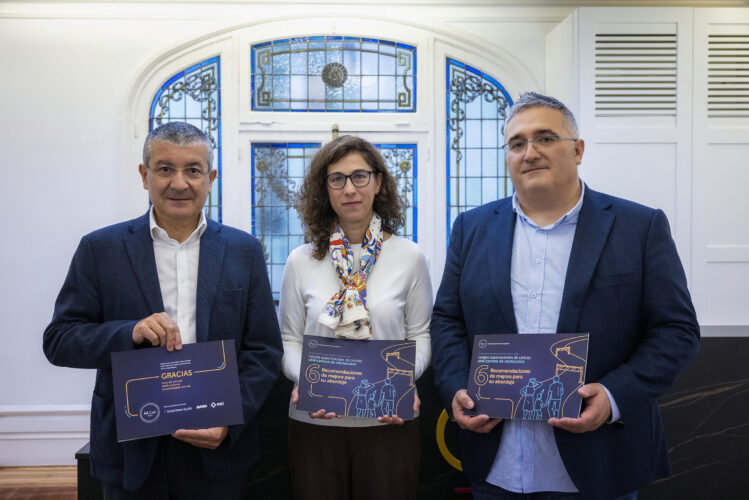
Advances in cancer diagnosis and treatment have allowed that, despite its increasing incidence, there are more than two million long-term cancer survivors in Spain. However, their situation poses numerous challenges, including physical and emotional consequences, difficulties in returning to work, and regional inequality. For this reason, on Thursday, October 30th, All.Can Spain called for a Comprehensive National Plan for Long-Term Cancer Survivors at a press event in Madrid, presenting a report with recommendations to enhance patient care. This move aligns with appeals made by other organizations in recent years.
“Our National Health System is still designed to cure cancer, but not to support those who have overcome it, due to the lack of a common model that causes territorial inequity and fragmented care. In fact, only 27% of the population is covered by updated survival registries. As a result, survivors still face gaps in follow-up, employment challenges, and emotional voids,” explained Dr. Rafael López, member of the Scientific Committee of All.Can Spain.
For her part, Guadalupe Fontán, also a member of the platform’s Scientific Committee, emphasized the importance of implementing measures that improve care for the growing population of long-term survivors. “It must be considered that by 2050, Spain will reach 350,000 new annual cancer diagnoses, almost 20% more than in 2025, and the process of chronicity for some tumors will continue. Therefore, it is necessary to develop individualized follow-up plans, promote treatment adherence, and create a national cancer epidemiological information system,” Fontán stated.
Specifically, it is estimated that 1 in 20 Spaniards will be a long-term cancer survivor, which requires new action plans to optimize care and follow-up for this population. “More and more people are living longer with the aftereffects of the disease and need comprehensive, coordinated care. Recognizing these needs must be complemented by improving care pathways between Primary and Hospital Care, reintegration support programs, and psychosocial support systems. We must ensure that their survival translates into full lives, with a system prepared to support them in the long term,” said David Trigos, member of the Scientific Committee of All.Can Spain.
The report presented by All.Can Spain, “Long-Term Cancer Survivors: An Obstacle Course. 6 Recommendations to improve their care” is the third study conducted by this international, multisectoral, non-profit platform. This trilogy addresses the stages of the oncological care pathway: from initial suspicion of the disease, diagnosis, and treatment, to the care of long-term survivors. It seeks to identify inefficiencies in the healthcare system and, based on this assessment, propose recommendations that optimize the patient experience at all stages.